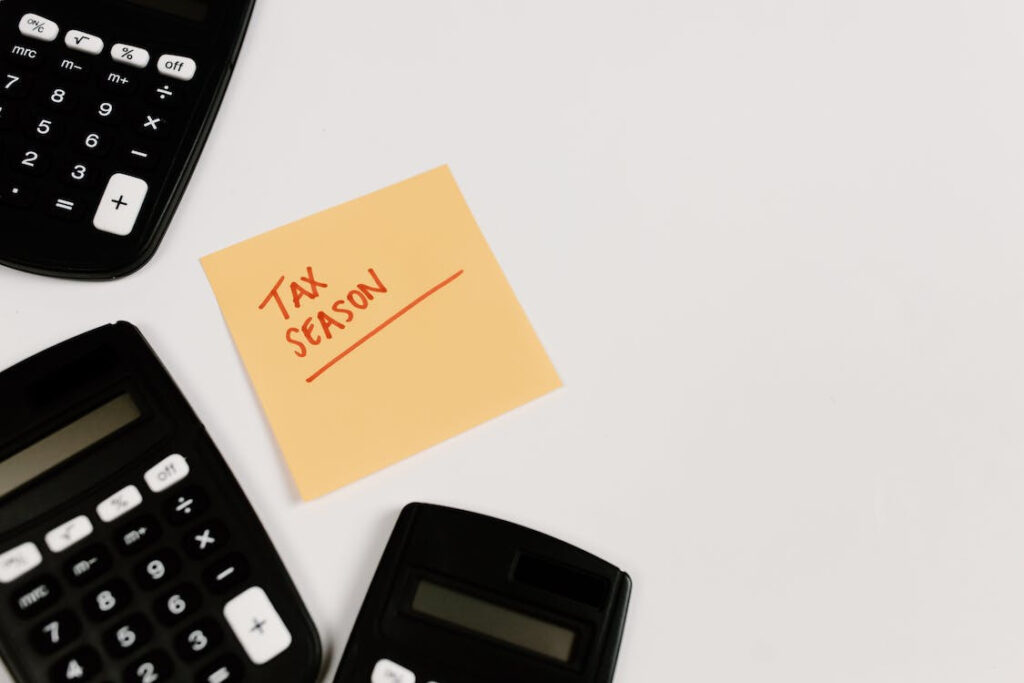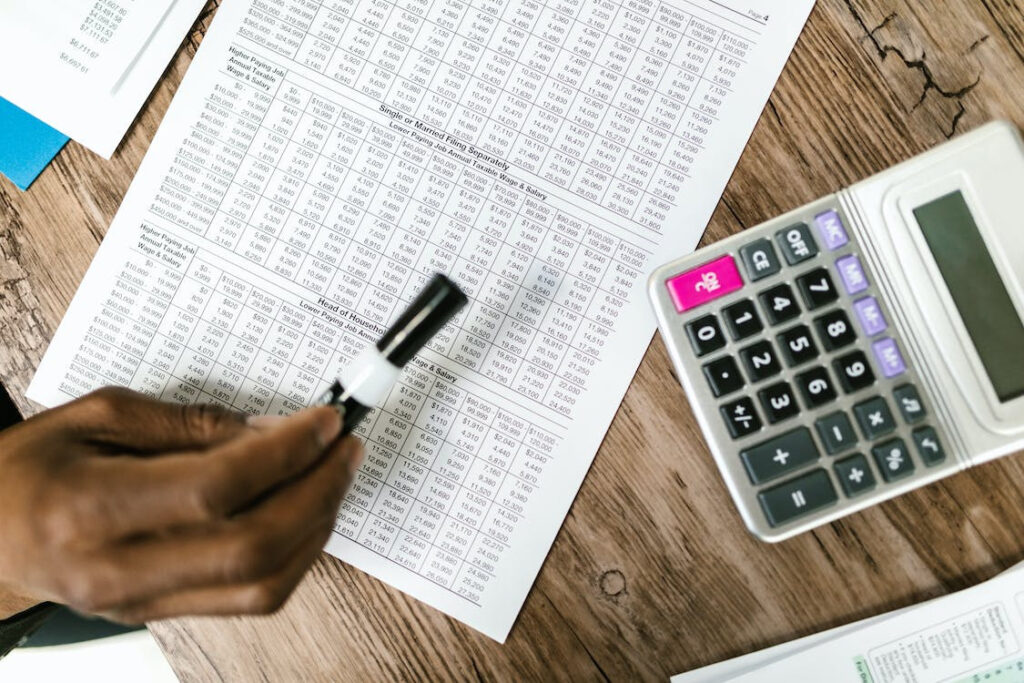Living in the UK, you need to be aware of the various rules and regulations in place for foreigners, especially when it comes to tax-related matters. The UK tax system can be complex to understand if you are a foreigner. You need to work out several details and identify your residence status to learn more about taxes for foreigners in the UK.
The UK tax system is arguably known as one of the longest sets of tax codes in the world. However, it is relatively simple when you look at it from a macro point of view. If you are living in the UK as a foreigner, you are liable to pay taxes, like every other citizen. While living in the UK, you will work, buy a property, get married, and much more. Therefore, you must know how the tax system works in each situation, preferably with the help of a tax specialist, like the ones at IBISS & CO.
Nevertheless, the amount of tax you have to pay solely depends on your tax residency status and personal circumstances. To help you get started, this blog will serve as a guide to the tax system for foreigners living in the UK. Keep reading to learn more.

The UK Tax System: A Brief Overview
Before we get started, let’s look at the UK tax system in more detail.
The HM Revenue and Customs (HMRC) is responsible for administering and collecting taxes in the UK. With the tax receipts increasing every year, there have been several new laws and updates around tax obligations for foreigners. The basic taxes for people living in the UK include income tax, property tax, capital gains tax, UK inheritance tax, and Value Added Tax (VAT).
It is important to note here that most of these taxes are categorised as progressive taxes, meaning that people with a higher income must pay taxes at a higher rate. Another thing you need to know about paying taxes in the UK is that you need to have a national insurance number to do so.

Who Needs to Pay Taxes in the UK?
Around 34 million people in the UK pay taxes. Most of the taxes in the UK, except for VAT, are tied to your income tax in one way or the other. The simple formula to calculate the amount of tax you need to pay is to add your income and any benefits you get, such as bonuses, subtract the personal allowance and then pay the correct tax rate on the difference you get.
The personal allowance for the tax year 2022/23 is £12,570, which means that if your income is below this, you get a tax exemption. In the UK, the tax rates are determined by your income, and they are equal for every person living in the UK, irrespective of their citizenship status. The only difference you might have to face because of your residency status is that your source of income should be specified when you file your tax returns.
Any UK resident who files their taxes in the UK is taxed based on their global income. They do get certain allowances to avoid double taxation. On the contrary, a UK non-resident must only pay taxes on the income they are earning in the UK. Furthermore, the UK tax system does not accept joint tax filings. Every individual must file their tax return separately.

How to Decide If You’re a UK Resident for Tax-Related Matters?
As mentioned above, you need to identify your UK residency status to learn about your tax obligations. There are several ways you can do so, including:
Automatic Overseas Test
This test categorises individuals as UK non-residents if they meet one of the below-mentioned conditions:
- You haven’t been a UK resident in the last three consecutive tax years and will spend fewer than 46 days in the upcoming tax year in the UK.
- Your residency status in the UK has only been applicable for at least one or maybe more of the last three tax years, and you will be in the UK for fewer than 16 days in the next tax year.
- You’re working abroad full-time in the next tax year, will spend fewer than 91 days in the UK in that tax year, and will not work in the UK for any more than 31 days.
Automatic UK Residence Test
On the other hand, you can decide if you are classified as a UK resident or not for the next tax year if you fulfil one of the three conditions of the automatic UK residence test:
- You remain in the UK for a minimum of 183 days during the tax year.
- Your main residence is in the UK, with a home you have rented, owned, or lived in for a minimum of 91 days, counting the 30 days in the concerned tax year.
- You are employed and work in the UK full-time for 365 days with a break of fewer than 31 days or more. A minimum of 274 of the working days must fall in the tax year under consideration.

Connections in the UK Test
If you don’t meet any of these conditions, your links in the UK can help conclude your status as a tax resident. The more connections you have, the less time it will take you to live in the UK without classifying you as a UK resident. On the contrary, the fewer connections you have, the more you will have to wait for the UK residency to apply.
If you have spent 16 to 45 days in the UK and have a minimum of four demonstrable connections, you’re eligible to be classified as a UK tax resident. The connections you need a decrease in number subject to the length of your UK stay. Here are some other conditions for this test:
- You have minor children and/or a spouse who are residents of the UK
- You have accommodation for at least 91 or more days
- You must be working for a minimum of 40 days during the tax year in the UK
- You must spend 90 days or more in the last two years in the UK
- The UK must be your favoured country, and you need to spend more days here than in any other country
The UK Tax System for Foreigners: An Overview
Generally, foreigners living in the UK have to pay taxes at the same rates as UK residents. All kinds of remunerations and extra benefits are taxable in the UK, such as cost of living allowance and school tuition. However, there are certain conditions where the employer’s contributions to the foreigner’s pension fund might not be taxable.
Furthermore, the UK has double-taxation agreements with over 130 countries around the world, including Australia, France, the Netherlands, Russia, Germany, Saudi Arabia, the United States, and the United Arab Emirates. This makes it one of the world’s largest networks.

Income Tax Rates in the UK
As mentioned above, your tax amount depends on your circumstances. Income tax in the UK is applied at progressive rates, meaning the higher your income, the more tax you will have to pay. All your sources of income, including your salary, rental income, pension, and bonuses, are totalled, your allowances are subtracted, and you are taxed on the remaining amount.
Additionally, people earning more than £125,140 will have to pay the additional rate after April 2023.
| England/Wales/Northern Ireland tax band | Taxable income | Income tax rate |
| Personal allowance | Up to £12,570 | 0% |
| Basic rate | £12,571–50,270 | 20% |
| Higher rate | £50,271–150,000 | 40% |
| Scotland tax band | Taxable income | Income tax rate |
| Personal allowance | £12,570 | 0% |
| Starter Rate | Over £12,571* – £14,732 | 19% |
| Scottish Basic Rate | Over £14,732 – £25,689 | 20% |
| Intermediate Rate | Over £25,689 – £43,663 | 21% |
| Higher Rate | Over £43,663 – £150,000** | 41% |
| Top Rate | Over £150,000** | 46% |

How to File Income Tax in the UK?
The UK tax year starts on 6 April of one year and ends on 5 April of the next year. You can file your self-assessment tax returns online or by post. However, you need to have a unique tax reference number (UTR) and other relevant documents that you can find on the HMRC’s website before you file your returns.
In addition, individuals must notify the HMRC if there are any changes to their tax status latest by 5 October, following the tax year-end. The cut-off date for submitting tax returns in the UK are as follows:
- 31 October (paper returns)
- 31 January (online returns)
What Happens if You Don’t File Taxes in the UK?
The UK tax system is complex and very strict. You will have to pay heavy fines and face penalties if you fail to pay the correct amount or don’t pay it on time.
A fine of £100 is charged on returns that are filed up to three months after the tax deadline. Over the subsequent three months, a penalty of £10 may be charged every day. If you fail to continuously pay your taxes for more than six months after the filing date, there is an additional fixed penalty of either £300 or 5 per cent of the tax liability. They choose the greater option. More penalties are applied to returns that are filed 12 months after the deadline, which may go up to 200 per cent of the tax liability in some cases.
Therefore, it is vital to learn about your tax obligations as soon as you can and file them well before the deadline to prevent any extra charges or penalties.

Let the Expert Tax Advisors at IBISS & CO. Help!
Now that you know everything about taxes for foreigners in the UK, it is time to get started. If you are having a hard time navigating the system, the experts at our tax consultancy firm can help. It can be a little challenging to find a reliable tax advisor, but we are the most dependable choice.
IBISS & CO. is your ideal option for all types of business and tax advice. Whether you find yourself in a tax investigation or dispute, you can connect with our tax advisors for expert guidance on all tax-related matters, including Making Tax Digital (MTD). We have some of the best tax accountants in London and Walsall on our team who can guide you in all types of tax issues.
Whether you need help regarding Capital Gains Tax allowances and reliefs, HMRC tax investigation, or other tax areas, our tax advisors are there to assist you every step of the way. Our firm is well-versed in all areas of accountancy and tax planning, helping you find new ways to rightfully reduce the amount of tax you have to pay.
Furthermore, we have more than 25 years of experience in accountancy and tax planning, making us one of the most credible consultancy firms. Our loyal client testimonials and referrals reflect our promises to serve and help. Whatever your tax needs are, you can get a free quote right here before you get started.
Get in touch with us today for business consultation and tax advice. Alternatively, you can visit our website to learn more about our tax-related services.




